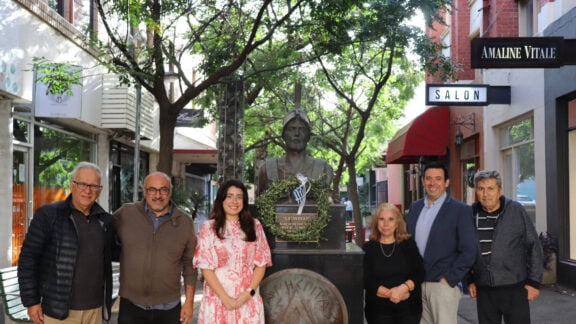Marcus Stavrakis has won this year’s Young Actuaries’ Public Policy Essay Competition with an entry detailing a solution to the cyber security crisis, an idea he will now be allowed to expand on with the Cyber Risk Working Group (CRWG).
The 23-year-old actuarial analyst’s essay titled “How the Australian Reinsurance Pool Corporation (ARPC) and Insurers can protect our data” was chosen as the best, much to his disbelief.
“The president of the Actuaries Institute called me out of the blue on a Sunday to tell me the good news. I was really shocked; I didn’t expect to win and couldn’t believe it,” Mr Stavrakis told Neos Kosmos.
This year’s competition tasked young actuaries with outlining a public policy challenge facing Australia while demonstrating how actuaries can use data for good to help solve that challenge.
Mr Stavrakis tackled the cyber security crisis, an issue he had become increasingly concerned with after seeing how damaging it could be for people.
“When I used to work in banking, I dealt with scams and cyber victims fairly often. I saw how people’s fortunes could be wiped away with one mis-click, and this had a profound effect on me,’ the young actuarial analyst said.
“Cyber seems to be a bit of a buzz word lately – CEOs often talk about it as an issue but often struggle to express a solution that is viable.”
Mr Stavrakis’ essay expressed that cyber insurance could help mitigate cyber risk and argued for the government to create a separate reinsurance pool to help protect small to medium enterprises from cyber risk.
“Cyber insurance, with the right support from the government, can be used to bolster the nation’s information technology systems, protect our nation’s economic advantage, and educate a large portion of society to become cyber savvy,” he said.
“My thesis is that small businesses and medium enterprises are priced out of receiving cyber consulting advice, which means they are vulnerable to attacks. Cyber insurance can fill this knowledge gap.”
The essay goes on further to explain that insurers have a track record of improving cyber defences and mitigating cyber-attacks but that there are capital restriction limitations due to cyber insurance being a generally new product.
“Actuaries call this “first-mover-disadvantage”. To fix capital limitations, the government can support by creating a reinsurance pool to support capital requirements,” Mr Stavrakis told Neos Kosmos.
The analyst underwent lots of brainstorming and reading for this essay, taking major inspiration from the creation of the ARPC for terror risk, using this as a base to formulate a similar idea to deal with cyber risk.
“I learnt how that retrocession pool operated and began to investigate the feasibility of a cyber pool. I also chatted to colleagues and mentors once I had a more concrete idea to finesse the idea,” he said.
Mr Stavrakis is in the process of expanding on his premise, turning the original 4000-5000 word document into a 10,000 word version in the near future through work with the CRWG.
“So far it is still very early days – we are planning to formally submit this idea as a component of public policy. This means a lot of time will be spent on expanding ideas and research,” the actuarial analyst said.
“Working with the Actuaries institute is always a pleasure. A lot of smart people volunteering to make the world a better place.”
Mr Stavrakis maintains a connection with his Hellenic roots with two parents of the Diaspora, his father’s side coming from Kalamata and his mother’s side coming from Lefkada.
“The community wellbeing component of the culture has certainly shaped my perspective on life. For example, the aggressive hospitality when I visit my grandparents or the way Easter and names day bring people together,” he said.
“This sense of community has highlighted the importance of teamwork and how we can all contribute for a greater purpose and help one another. I’m planning in the near future to become more involved with the Greek community.”








